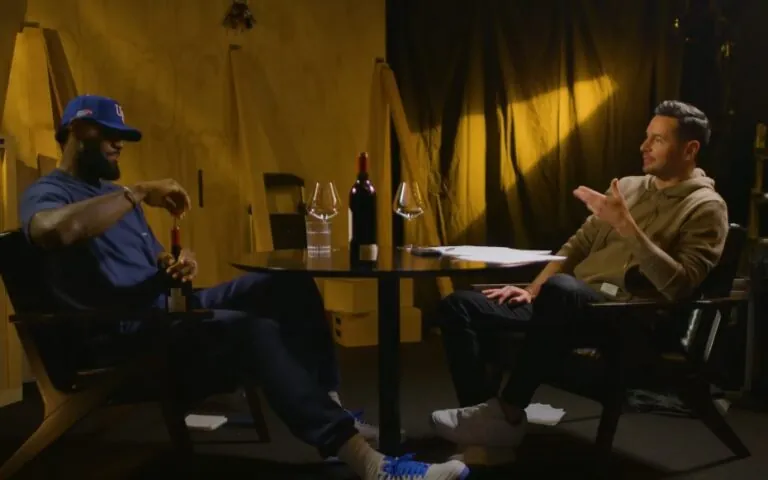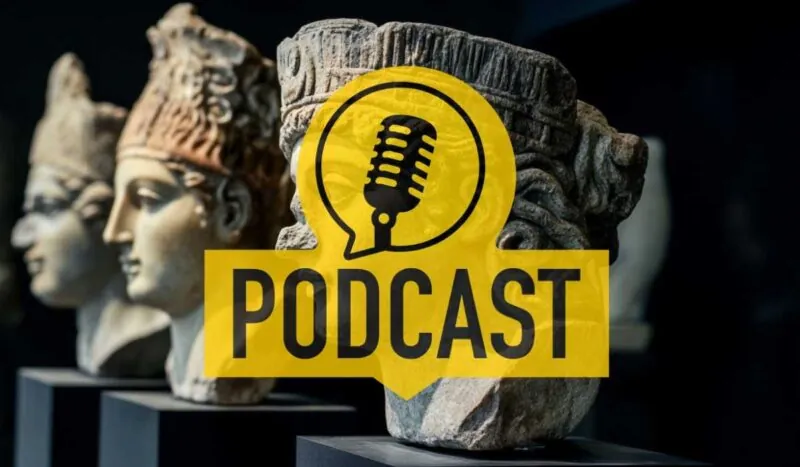Podcasts have surged in popularity as a go-to form of entertainment and education. Complex subjects now reach wider audiences through audio storytelling.
Ancient Mediterranean civilizations, Rome, Greece, Egypt, Carthage, and the Hellenistic East, have become particularly popular topics for curious minds.
A good podcast can turn historical analysis into an engaging narrative, giving new life to names and events long buried in textbooks.
Without further ado, let us talk about the best podcasts that focus on ancient civilizations.
1. The History of Rome
Mike Duncan delivers one of the most celebrated historical podcast series of the past decade. A podcast that can keep you well entertained while traveling or similar.
Starting at Rome’s legendary founding, he methodically guides listeners through the republic’s rise, its transformation into an empire, and eits ventual disintegration in the West.
Each episode builds sequentially, forming a narrative arc that’s both educational and immersive.
Listeners appreciate the clear structure, with Duncan’s tone striking a balance between informative and approachable. Every major political figure, military campaign, and internal conflict receives thoughtful attention. Roman law, religion, and societal shifts unfold over time, revealing how such a vast system came to power and then unraveled.
Duncan’s podcast often serves as a springboard for further historical interest. It’s especially helpful for those seeking a well-organized chronology. No filler, no fluff—just history as it happened, week by week.
- Covers Rome from 753 BCE to 476 CE
- Strong chronological focus
- Friendly to newcomers and long-time fans alike
2. The History of Byzantium
Robin Pierson takes the torch right where Duncan leaves off, guiding listeners through the Eastern Roman Empire’s long and intricate story.
Byzantium’s legacy, often overshadowed in Western curricula, gets its full due here. Episodes span from the reign of Constantine through the fall of Constantinople in 1453.
Socio-political structures, religious dynamics, military conflicts, and administrative reforms are addressed with depth. Listeners come away with insights into how Byzantium managed continuity and transformation while the West crumbled.
Pierson has a gift for explaining complicated events like the Iconoclasm, the rise of Islam, or shifting alliances between emperors and generals.
Cultural evolution within Byzantium also receives attention—art, liturgy, and court life form a substantial part of the narrative. It’s a podcast that invites listeners to reconsider what “Rome” really meant after the West’s collapse.
- Begins in 476 CE and ends in 1453
- Focus on the Eastern Roman Empire’s evolution
- Bridges the historical gap often ignored in Western media
3. The Ancients (History Hit)
Hosted by Tristan Hughes, this podcast thrives on its interview format and topic variety. Rather than a chronological retelling, episodes spotlight particular events, people, or archaeological discoveries.
Guests include scholars, authors, and field researchers who offer grounded analysis while keeping it approachable.
Roman military tactics, Hellenistic city-states, Egyptian burial practices, and Mesopotamian inscriptions all make appearances.
The podcast even talks about the art of those times. For instance, we all know the “Achilles and Ajax playing a board game” vase. It is interesting to see that gambling games of that day are similar to those we can find on websites such as https://888starz.com.pt.
Hughes guides each conversation with energy, often weaving modern parallels into ancient contexts. The result is an experience that feels contemporary while staying academically responsible.
High production quality and a diverse array of topics set it apart. Those not interested in rigid timelines will find each episode rewarding in its own right.
- Hosted interviews with academics
- Covers Rome, Greece, Egypt, and Mesopotamia
- Suitable for casual and in-depth listeners
4. The Fall of Rome
Patrick Wyman, a historian and journalist, takes a scientific and multidisciplinary look at Rome’s decline in the West.
Genetics, climate shifts, economic fragmentation, and societal breakdowns are all examined through current research lenses. This podcast goes far beyond the “barbarians at the gate” narrative.
Wyman’s approach challenges oversimplified versions of history. Episodes examine how ordinary people experienced imperial decay.
He also explores how disease, supply chains, and class divisions shaped the collapse. Military failure is not the lone culprit; instead, a systemic unraveling is presented.
Each episode feels methodical yet provocative, asking listeners to rethink what “collapse” really means. It’s a rare synthesis of academic insight and media fluency.
- Strong interdisciplinary perspective
- Emphasis on structural factors in Rome’s fall
- Engaging, analytical storytelling
5. Emperors of Rome
Matt Smith and Dr. Rhiannon Evans deliver a fresh format by focusing on individual Roman emperors. Episodes mix biography with thematic analysis, often shedding light on lesser-known rulers.
Names like Caracalla, Domitian, or Gallienus get time in the spotlight, beyond just Augustus and Nero.
Academic credentials meet a casual tone. Evans offers a scholarly interpretation, while Smith keeps the pace conversational. Listeners come away with a better grasp of Rome’s volatile leadership and how imperial personas shaped policy and propaganda.
Political intrigue, military campaigns, and public spectacle all play major roles. It’s more than a list of emperors, it’s a mirror into Roman values and anxieties.
- Biographical storytelling
- Engaging host dynamic
- Focus on personalities and imperial ideology
6. Tides of History
Patrick Wyman returns in this broader podcast covering ancient and medieval transitions. Early episodes dive into the Bronze Age collapse, Indo-European migrations, Neolithic farming, and linguistic patterns that seeded Mediterranean civilizations.
The scope spans centuries, connecting disparate cultures through archaeological and linguistic evidence.
Listeners are introduced to the rhythms of prehistory and early statehood. Wyman explores how climate, domestication, and trade routes laid foundations for future empires.
Later episodes touch on Rome, but the real value lies in earlier civilizations often left out of traditional timelines.
Scientific rigor remains strong. Wyman combines anthropological data with narrative technique, giving weight to topics that usually sit at the margins of mainstream history.
- Focus on early societal transitions
- Mix of archaeology and linguistics
- Pre-Roman civilizations in the Mediterranean basin
7. Ancient History Fangirl
Hosted by Jenny Williamson and Genn McMenemy, this podcast feels like history class meets late-night storytelling. Scandals, betrayals, love affairs, and bloody conflicts take center stage.
Episodes tackle myths and historical records with a focus on drama, often drawing on firsthand sources.
Carthaginian queens, Hellenistic philosophers, and rebellious women feature heavily. Episodes often weave in humor and modern slang while keeping historical accuracy intact. Listeners who shy away from academic tones will find a refreshing blend of facts and irreverence.
Underrepresented civilizations and figures get due attention, making it more than just another Rome-and-Greece podcast. Stories feel immediate and personal, like hearing old secrets whispered into a microphone.
- Story-driven with narrative flair
- Strong female perspectives
- Covers lesser-known Mediterranean cultures
Summary
These podcasts offer valuable perspectives on ancient Mediterranean civilizations. Instead of dry academic summaries, they bring historical figures and forces to life.
Listeners can learn, laugh, and gain insights without feeling overwhelmed. Every podcast on this list serves as a gateway into a fascinating world of empire, myth, war, and transformation.
Check out more history podcast suggestions that can keep you entertained!









